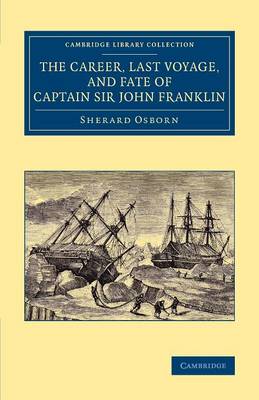Cambridge Library Collection - Polar Exploration
2 total works
By the middle of the nineteenth century, the goal of the North-West Passage had claimed the lives of many explorers, yet the disappearance of the expedition led by Sir John Franklin occasioned the greatest response. Naval officer Sherard Osborn (1822-75) took part in the search mission of 1850-1 under Horatio Thomas Austin. Osborn was appointed to command the Pioneer, one of two steam tenders on the voyage. This was the first time such vessels had been deployed in the punishing conditions of the Arctic. Such was their success in cutting through ice and navigating the treacherous waters that similar models were later adopted by the whaling fleet. The present work, first published in 1852, gives a compelling account of the hardships of the expedition, which was successful in its surveying work and confirmed that Franklin had not been lost in Baffin Bay.
The Career, Last Voyage, and Fate of Captain Sir John Franklin
by Sherard Osborn
Published 24 April 2014
The disappearance of Sir John Franklin's Arctic expedition of 1845 led to many rescue attempts, some by the British government, and some by private individuals. This short 1860 account of Franklin's life and of the search for him was written by the experienced naval officer Sherard Osborn (several of whose other works have been reissued in this series) with a view to inspiring the youth of Britain to follow the great explorer's example of duty and rectitude. Osborn (1822-75) had begun his naval career in the Far East, but was a pioneering commander of steam-powered ships, and his performance in the steam tender HMS Pioneer in the 1850 rescue expedition confirmed the efficiency of this new technology in icy waters. Decorated for his role in the Crimean War, and later active in railway and telegraph technology, he continued to take an interest in Arctic exploration, and in steamships, until his death.

